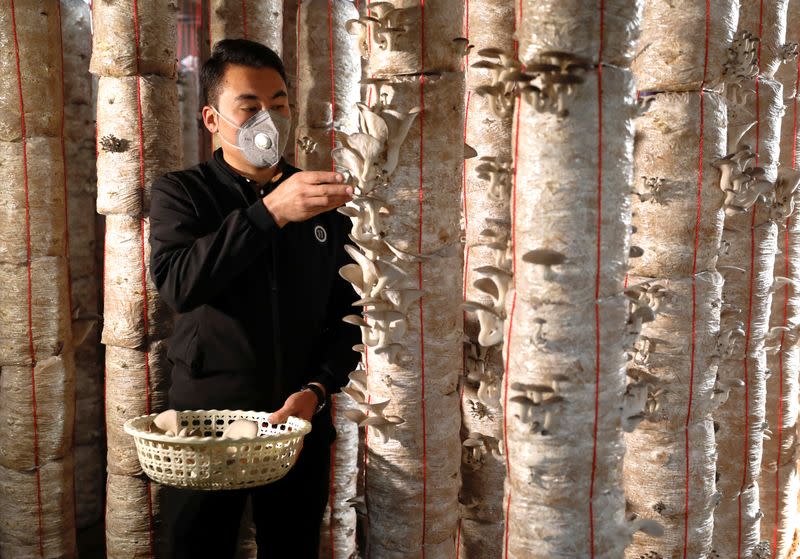By Hameed Farzad, Sayed Hassib and Aziz Mohammad
KABUL (Reuters) – On his farm in Afghanistan’s capital, Kabul, Rasool Rezaie delicately picks oyster mushrooms, part of the nearly 30 kg he sells daily in markets.
Rezaie learned to grow mushrooms during a stay in Russia and set up his farm two years ago.
“I was introduced to a mushroom farm in Russia by a friend and started working there, where I learned how to grow mushroom spores and grow them,” said Rezaie, who moved to Russia in 2012 due to insecurity and unemployment in Afghanistan.
In 2016, more than a million people, a quarter of them Afghans, applied for asylum in Europe, Rezaie among them.
His claim was dismissed and he returned to Afghanistan, where he initially worked as a shopkeeper. But the memory of mushroom cultivation remained.
“I said to myself ‘when I have experience in this profession, why shouldn’t I do it?’,” He told Reuters.
He started growing mushrooms in a single room in his own home, producing 4-5 kg for markets. Today, Rezaie said he earns about 4,500 Afghans ($ 58) a day and is optimistic about his future.
He even started providing spores to others who want to establish their own mushroom farms, a rare example of domestic agriculture in Afghanistan, where seeds are often imported.
Rezaie said mushroom cultivation increased during the coronavirus pandemic, with people looking for a new source of income as companies closed.
Zakir Hussain Mohammadi, a seller who sells about 10 kg of mushrooms a day at a local market in Kabul, said that consumer interest is also increasing.
Rezaie hopes that other farmers will also grow mushrooms and change Afghanistan’s image as a global producer of opium.
(Corrects the title and paragraphs 4-5 to reflect that Rezaie was deported from Europe, not Russia)
(Reporting by Hameed Farzad, Sayed Hassib and Aziz Mohammad; Writing by Umar Farooq; Editing by Janet Lawrence)
